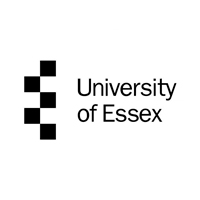fees waived
History and East European Cultural Studies, BA (Hons)
University of Nottingham, United Kingdom
Subject ranking
UK / Times 2025 9th
UK / ARWU 2024 9th
UK / ARWU 2024 11th
Costs
food & rentS$16.8K / year
Entry requirements
Scholarships
Limited quantity
Information
Code
Intakes
Website (External)
Programmes
Information
Duration
2028
Course summary
If you are interested in combining your interests in history with a focus on Eastern Europe, and in particular the vibrant and dynamic cultures of Russia and South East Europe, then this degree course is for you.In History you will be able to choose from an extensive range of modules, including options in Russian and Eastern European history. In the East European cultural studies part of your degree you will study the societies, histories, politics and cultures of the territory of Eastern Europe and Russia from the Byzantine period to the 21st century, beginning with modules that approach study of these cultures at introductory level, and specialising as your studies progress.Optional modules include topics in the literature, cinema, popular culture and history of Russia and South-East Europe, with a particular focus on the region that was formerly Yugoslavia. If you wish, you may learn a Slavonic language: Russian and Serbian/Croatian are both offered from beginners’ level. Language study is optional and this degree does not include a year abroad.By the end of your course you will have acquired a breadth of knowledge across the periods of history you have chosen to study, as well as a thorough grounding in the techniques and theories used by historians. You will also offer specialist knowledge of the histories and cultures of Russia and South-East Europe, which are increasingly important contexts for international diplomacy, politics and business. Your transferable skills will include the ability to plan and carry out research, to analyse texts and other information critically and to communicate and present ideas effectively. You may also be able to offer expertise in a less widely taught language.
Modules
Throughout your course you will split your study time equally between modules taught by the Department of History and the Department of Russian and Slavonic Studies.In year one you take the core module Learning History which introduces you to the skills and methodologies of historical research, together with a choice of modules from the early medieval period to the 20th century. In East European Cultural Studies, you will choose from a range of optional modules introducing the history and culture of Russia, the Soviet Union, and the Balkan region. You may also choose to begin learning Russian or Serbian/Croatian.In year two you will be able to choose from a wide array of optional history modules, covering an extremely wide chronological and geographical range. In East European Cultural Studies the range of options at this level includes a broad coverage of cultural studies, literature and history. You will also be able to start or continue with the study of Russian or Serbian/Croatian.In your final year you will select a Special Subject in history as well as choosing from a wide range of specialist optional modules. In East European Cultural Studies you will be encouraged to specialise in subjects of particular interest to you, including the option to write a dissertation under specialist supervision.
Throughout your course you will split your study time equally between modules taught by the Department of History and the Department of Russian and Slavonic Studies. In year one you take the core module Learning History which introduces you to the skills and methodologies of historical research, together with a choice of modules from the early medieval period to the 20th century. In East European Cultural Studies, you will choose from a range of optional modules introducing the history and culture of Russia, the Soviet Union, and the Balkan region. You may also choose to begin learning Russian or Serbian/Croatian. In year two you will be able to choose from a wide array of optional history modules, covering an extremely wide chronological and geographical range. In East European Cultural Studies the range of options at this level includes a broad coverage of cultural studies, literature and history. You will also be able to start or continue with the study of Russian or Serbian/Croatian. In your final year you will select a Special Subject in history as well as choosing from a wide range of specialist optional modules. In East European Cultural Studies you will be encouraged to specialise in subjects of particular interest to you, including the option to write a dissertation under specialist supervision.
A local representative of University of Nottingham in Singapore is available online to assist you with enquiries about this course.



